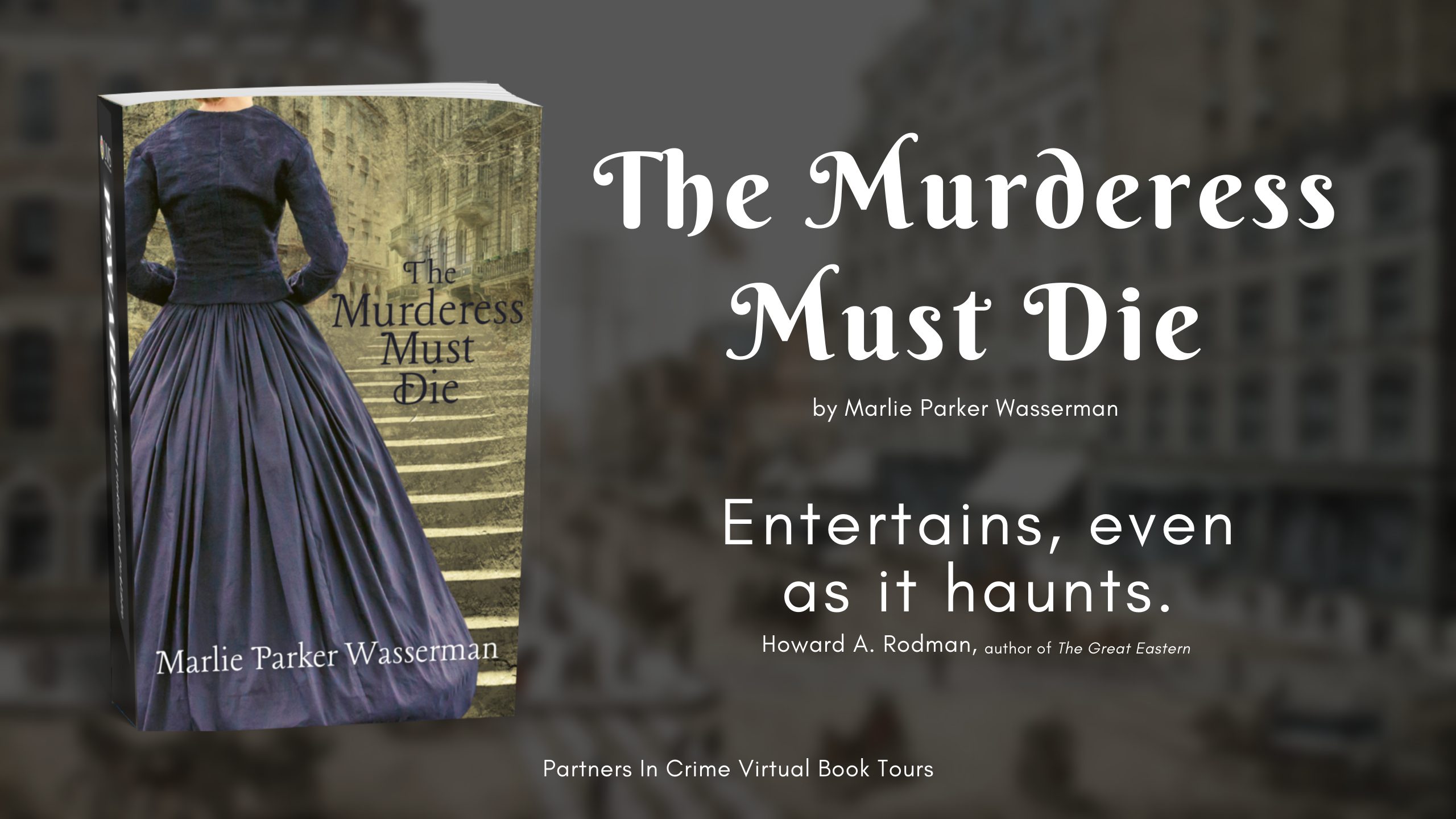My Rock
September 18th, 2021Trace of Doubt
September 14th, 2021Trace of Doubt
by DiAnn Mills
September 1-30, 2021 Tour
Synopsis:

Bestselling and award-winning author DiAnn Mills delivers a heart-stopping story of dark secrets, desperate enemies, and dangerous lies.
Fifteen years ago, Shelby Pearce confessed to murdering her brother-in-law and was sent to prison. Now she’s out on parole and looking for a fresh start in the small town of Valleysburg, Texas. But starting over won’t be easy for an ex-con.
FBI Special Agent Denton McClure was a rookie fresh out of Quantico when he was first assigned the Pearce case. He’s always believed Shelby embezzled five hundred thousand dollars from her brother-in-law’s account. So he’s going undercover to befriend Shelby, track down the missing money, and finally crack this case.
But as Denton gets closer to Shelby, he begins to have a trace of doubt about her guilt. Someone has Shelby in their crosshairs. It’s up to Denton to stop them before they silence Shelby—and the truth—forever.
Praise for Trace of Doubt:
“Well-researched… with some surprising twists along the way. In Trace of Doubt, Mills weaves together a tale of faith, intrigue, and suspense that her fans are sure to enjoy.” – STEVEN JAMES, award-winning author of SYNAPSE and EVERY WICKED MAN
“Trace of Doubt is a suspense reader’s best friend. From page one until the end, the action is intense and the storyline keeps you guessing.” – EVA MARIE EVERSON, bestselling author of FIVE BRIDES and DUST
“DiAnn Mills serves up a perfect blend of action, grit, and heart… Trace of Doubt takes romantic suspense to a whole new level.” – JAMES R. HANNIBAL, award-winning author of THE PARIS BETRAYAL
“Filled with high stakes, high emotion, and high intrigue.” – JLYNN H. BLACKBURN, award-winning author of UNKNOWN THREATand ONE FINAL BREATH
Book Details:
Genre: Mystery & Thrillers, Romance, Romantic Suspense
Published by: Tyndale House Publishers
Publication Date: September 7th 2021
Number of Pages: 432
ISBN: 1496451856 (ISBN13: 9781496451859)
Purchase Links: Amazon | Barnes & Noble | ChristianBook.com | Tyndale | Books-A-Million | Murder By The Book | Goodreads
ISLAND BREEZES
FBI agent Denton McClure has been obsessed with Shelby Pearce for fifteen years. That’s how long she had been in prison for the death of her sister’s husband.
At the time of his death $500,000 disappeared from his charity group for orphans. Dentin is positive Shelby took it and has it hidden someplace.
He is so certain of this that he moved in as her neighbor. He thought he was good with undercover detail, but Shelby is not stupid. She eventually called him out.
Shelby’s life was in danger and she was tired of it. She decided she needed to go undercover herself in order to get the real killer exposed. Of course, she managed to put herself in even more danger.
It didn’t take me long to have a suspect in mind. It did take me much longer to figure out the thief.
There were lots of twists and turns in this book. Enough that you might find yourself sitting on the edge of your chair.
Thank you, Ms Mills. This is only the second book of yours that I’ve read, but am looking forward to many more.
***Book received from PICT without charge.***
Read an excerpt:
PROLOGUE
SHELBY
Would I ever learn? I’d spent too many years looking out for someone else, and here I was doing the same thing again. Holly had disappeared after I sent her to the rear pantry for potatoes. She’d been gone long enough to plant and dig them up. I needed to get those potatoes boiling to feed hungry stomachs.
I left the kitchen to find her. The hallway to the pantry needed better lighting or maybe fewer corners. In any event, uneasiness swirled around me like a dust storm.
A plea to stop met my ears. I raced to the rear pantry fearing what I’d find.
Four women circled Holly. One held her arms behind her back, and the other three took turns punching her small body. My stomach tightened. I’d been in her shoes, and I’d do anything to stop the women from beating her.
“Please, stop,” Holly said through a raspy breath. For one who was eighteen years old, she looked fifteen.
“Hey, what’s going on?” I forced my voice to rise above my fear of them.
“Stay out of it, freak.”
I’d run into this woman before, and she had a mean streak. “What’s she done to you?” I eyed the woman.
“None of your business unless you want the same.”
“It’s okay, Shelby. I can handle this.” Holly’s courageous words would only earn her another fist to her battered face.
And it did.
“Enough!” I drew my fists and stepped nose to nose with the leader.
The four turned on me. I’d lived through their beatings before, and I would again. I fell and the kicks to my ribs told me a few would be broken.
A whistle blew, and prison guards stopped the gang from delivering any more blows to Holly or me. They clamped cuffs on the four and left Holly and me on the floor with reassurance help was on its way.
I’d been her age once and forced to grow up fast. No one had counseled me but hard knocks, securing an education, and letting Jesus pave the way. I’d vowed to keep my eyes and ears open for others less fortunate.
Holly’s lip dripped blood and a huge lump formed on the side of her head. I crawled to her. “Are you okay?”
“Not sure. Thank you for standing up for me. I thought they would kill me. Why do they do this? I’ve never done a thing to them.”
“Because they can. They want to exert power, control. Stick by me, and I’ll do my best to keep you safe.”
CHAPTER 1
I tightened my grip on the black trash bag slung over my shoulder containing my personal belongings—parole papers, a denim shoulder bag from high school, a ragged backpack, fifty dollars gate money, my driver’s license at age sixteen, and the clothes I’d worn to prison fifteen years ago.
The bus slowed to pick me up outside the prison gates, its windshield wipers keeping pace with the downpour. The rain splattered the flat ground in a steady cadence like a drum leading a prisoner to execution. I stepped back to avoid the splash of muddy water from the front tires dipping into a pothole. Air brakes breathed in and out, a massive beast taking respite from its life labors.
The door hissed open. At the top of the steps, a balding driver took my ticket, no doubt recognizing the prison’s release of a for- mer inmate. He must have been accustomed to weary souls who’d paid their debts to society. The coldness glaring from his graphite eyes told me he wagered I’d be locked up again within a year. Maybe less. I couldn’t blame him. The reoffend stats for female convicts like me soared high.
For too many years, I imagined the day I left prison would be bathed in sunlight. I’d be enveloped in welcoming arms and hear encouraging words from my family.
Reality hosted neither.
I moved to the rear of the bus, past a handful of people, and found a seat by myself. All around me were those engrossed in their devices. My life had been frozen in time, and now that I had permission to thaw, the world had changed. Was I ready for the fear digging its claws into my heart?
The cloudy view through the water-streaked window added to my doubts about the future. I’d memorized the prison rules, even prayed through them, and now I feared breaking one unknowingly.
The last time I’d breathed free air, riding the bus was a social gathering—in my case, a school bus. Kids chatted and laughter rose above the hum of tires. Now an eerie silence had descended.
I hadn’t been alone then.
My mind drifted back to high school days, when the future rested on maintaining a 4.0 average and planning the next party. Maintaining my grades took a fraction of time, while my mind schemed forbidden fun. I’d dreamed of attending college and exploring the world on my terms.
Rebellion held bold colors, like a kaleidoscope shrouded in black light. The more I shocked others, the more I plotted something darker. My choices often seemed a means of expressing my creativity. While in my youth I viewed life as a cynic. By the time I was able to see a reflection of my brokenness and vowed to change, no one trusted me.
All that happened . . .
Before I took the blame for murdering my brother-in-law. Before I traded my high school diploma and a career in interior design for a locked cell.
Before I spent years searching for answers.
Before I found new meaning and purpose.
How easy it would be to give in to a dismal, gray future when I longed for blue skies. I had to prove the odds against me were wrong.
***
Excerpt from Trace of Doubt by DiAnn Mills. Copyright 2021 by DiAnn Mills. Reproduced with permission from DiAnn Mills. All rights reserved.
Check Out This Fab Trailer for Trace of Doubt:
Author Bio:
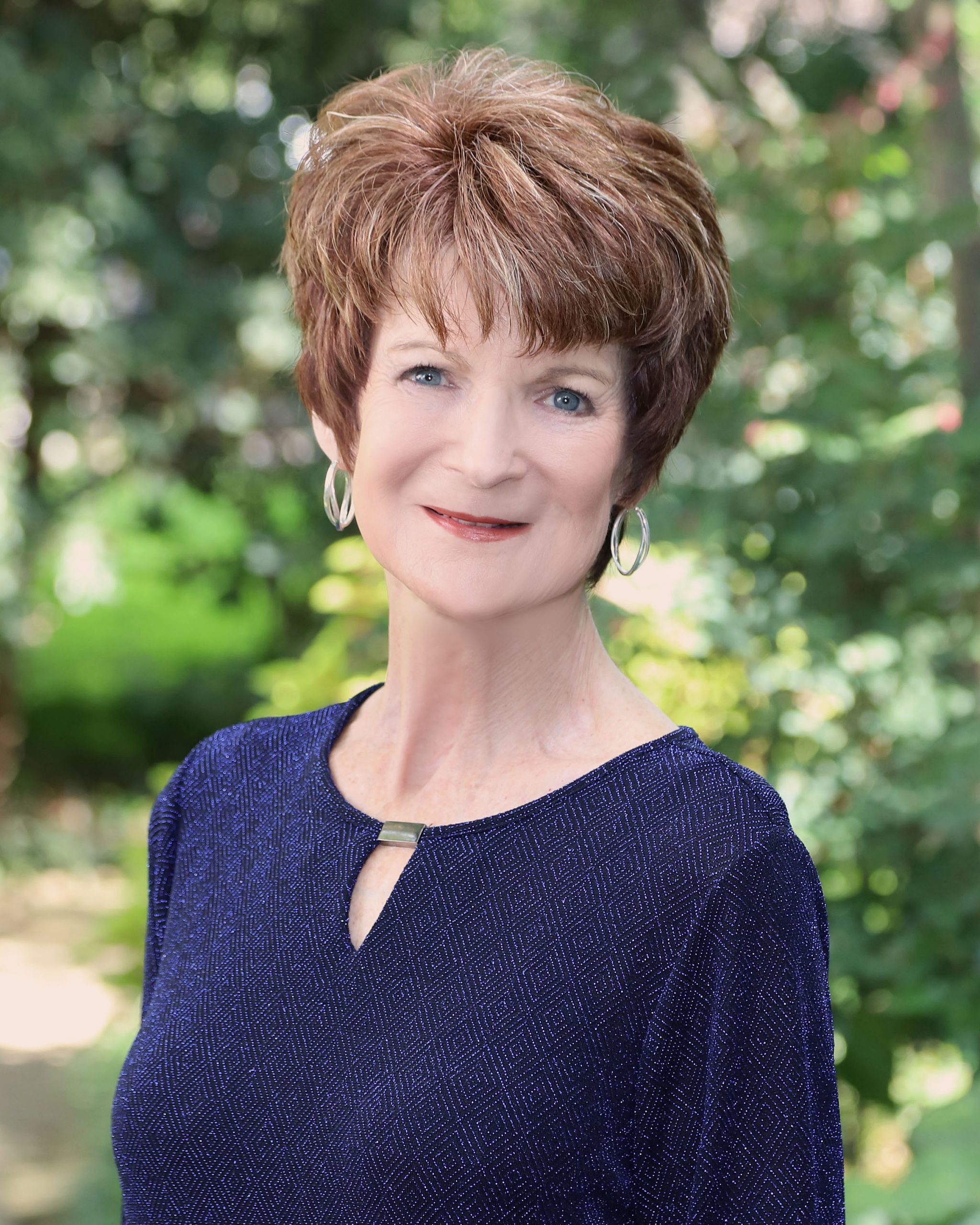
DiAnn Mills is a bestselling author who believes her readers should expect an adventure. She combines unforgettable characters with unpredictable plots to create action-packed, suspense-filled novels. DiAnn believes every breath of life is someone’s story, so why not capture those moments and create a thrilling adventure?
Her titles have appeared on the CBA and ECPA bestseller lists; won two Christy Awards; and been finalists for the RITA, Daphne Du Maurier, Inspirational Readers’ Choice, and Carol award contests.
DiAnn is a founding board member of the American Christian Fiction Writers, a former director of Blue Ridge Christian Writers, and a member of Advanced Writers and Speakers Association, Mystery Writers of America, Sisters in Crime, and International Thriller Writers. She shares her passion for helping other writers be successful by teaching writing workshops around the country.
DiAnn has been termed a coffee snob and roasts her own coffee beans. She’s an avid reader, loves to cook, and believes her grandchildren are the smartest kids in the universe. She and her husband live in sunny Houston, Texas.
DiAnn is very active online and would love to connect with readers on any of the social media platforms listed:
DiAnnMills.com
Goodreads
BookBub – @DiAnnMills
Instagram – @DiAnnMillsAuthor
Twitter – @DiAnnMills
Facebook – @DiAnnMills
Tour Participants:
Visit these other great hosts on this tour for more great reviews, interviews, guest posts, and giveaways!
Join In:
This is a rafflecopter giveaway hosted by Partners in Crime Virtual Book Tours for DiAnn Mills. There will be 2 winners who will each receive one gift card. Winners may select either Amazon or Barnes & Noble. (U.S. ONLY). The giveaway runs September 1 through October 3, 2021. Void where prohibited.
Get More Great Reads at Partners In Crime Virtual Book Tours
Purchased
September 11th, 2021He Still Cries
September 11th, 2021The Memory Bell
September 7th, 2021The Memory Bell
by Kat Flannery
September 1-30, 2021 Tour
Synopsis:
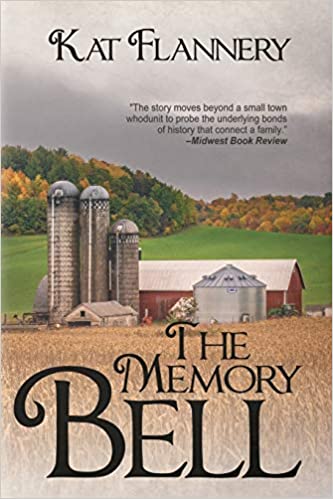
Grace Penner’s safe haven crumbles when a body is found outside of town.
Gifted the memory bell, a family heirloom, from her grandfather’s will, Grace’s excitement is soon squashed when the bell gets broken right after she receives it. While gluing the pieces back in place, she discovers three are still missing.
Determined to find them, she is halted when the new detective, Bennet James, investigates her family. Grace is intent on showing the detective her family isn’t capable of murder, but as the investigation deepens, and pieces of the bell show up with ominous notes, Grace soon realizes the Penners are not what they seem. Amidst the tightly knit family; dark secrets, deception, and possibly even murder unfold.
Will Grace be able to save the family she loves more than anything without losing herself forever?
Praise for The Memory Bell:
“A naïve small-town girl and a disillusioned big-city cop, drawn together by an unsolved crime that is itself only the tip of the iceberg, The Memory Bell serves up the perfect steamy summer read.”
–Jenny Jaeckel, author of House of Rougeaux
“The story moves beyond a small town whodunit to probe the underlying bonds of history that connect a family.”
-Midwest Book Review
“Wonderful, engaging, and fast-paced! Flannery knows what she’s doing!”
-Jonas Saul, author of the Sarah Roberts series
Book Details:
Genre: Mystery, Suspense
Published by: Black Rose Writing
Publication Date: July 1, 2021
Number of Pages: 288
ISBN: 1684337089 (ISBN-13:978-1684337088)
Purchase Links: Amazon | Barnes & Noble | Goodreads
SUNNY ISLAND BREEZES
It’s the bell that keeps the family together. The glue, so to speak. This memory bell is the one precious thing Grace inherited from her grandfather.
It gets broken almost immediately. Grace determinedly glued it all back together, but it had three pieces missing.
Grace didn’t know it at the time but began learning just how broken her family really is. Appearances are definitely deceiving.
All Grace really wants is to put the bell and her family back together. Will she be able to find the missing pieces?
***Book provided without charge by PICT.***
Read an excerpt:
“Family is supposed to be our safe haven. Very often, it’s the place where we find the deepest heartache.” ~ Iyanla Vanzant
CHAPTER ONE
Detective Bennet James stood over the remains of a hand dug grave. The morning air was brisk for July, and a foggy cloud permeated the air as he exhaled. He’d woken as the first rays of dawn crept through his hotel window casting sundogs along the planked floor.
Bones were found by the grain elevators at the mill in Oakville. The sleepy town was an hour’s drive from Chicago and where he’d been stationed for the last two weeks. It was hell, but anything was better than sitting at home waiting to hear his fate. He flexed his shoulders. The muscles ached from the mounting pressure.
He took a sip of the coffee he’d bought at the local gas station. The bitter blend was cold and old. Probably made the night before and just waiting for some poor soul to drain the last of the dregs from the decanter.
With no details other than the presence of human remains to work with, Ben made quick work of taping off the area and closing all access in and out of the mill. The trains were halted and all productivity near the tracks was at a standstill. He surveyed the grounds. Three metal silos stood in a row to his left with tracks laid in front of them. Directly behind were wooden buildings with peaked roofs, and a single track led to a dead end.
He gathered the mill was over fifty years old by the way the boards heaved and sagged. Out of commission for some time, he wondered why no one had torn the dilapidated buildings down. Being that the place was pretty much deserted it’d make things difficult in the investigation. He snorted. It wasn’t his investigation, and if things didn’t work out for him with the state, he’d never see another one again.
He rubbed his hand across his face. His heart quickened with the familiar feeling of piecing together a puzzle. It was the same feeling he got every time he was dealt a new case. Except this one was different. It wasn’t his, and even though the thought of having something to occupy his mind was appealing, he doubted Sheriff Rhoads would let him take the lead on it, much less be a part of it.
Ben glanced down at the body. Nothing left but bones and a few fragments of hair which signified the death happened years before. The grave was not shallow, but not deep either. Ben guessed it was four feet into the ground. A blue blanket caught his eye. He fingered the soft cotton with a gloved hand, a crocheted throw that was now pulled from the knots someone delicately placed there. Whoever had wrapped the victim in it did so with pristine care.
“Where is the witness?” he asked the young deputy standing to his left. He couldn’t remember the boy’s name, or was it he didn’t care? It didn’t really matter. He’d stopped caring about those around him a long time ago.
The deputy looked a bit flushed, and Ben figured the kid living in the small town had never seen anything like this before. Regret settled in his stomach at making the boy stay with him while he looked over the body and its surroundings. Ben remembered seeing his first body, a young girl, no more than six. Her image still haunted him on nights when sleep wouldn’t come.
He blinked, collected his thoughts, and faced the young man.
“You’re no longer needed here,” he said.
“The men who found the body are over there,” the kid stammered. His hand shook as he pointed to the two silhouettes standing twenty yards away.
“Thanks.” Ben dismissed him and walked toward the two men sipping coffee from their mugs. A part of him wanted to turn back to his car and leave now that Rhoads was here, but his pride and his duty wouldn’t allow it. He pulled out the small note pad and pen he kept in his pocket.
“Morning. I need to ask you a few questions.”
“Ain’t you the new fella?” one of the men asked.
“Yeah.”
“You’re that swanky detective from the city.”
Ben didn’t answer.
“Why in hell would you want to come out here?”
He remained silent. It was none of the old man’s business why he’d been placed in this shithole town.
“Talk is you got into hot water up there.”
“I need to ask you some questions,” Ben repeated, an edge creeping into his voice. He wasn’t about to discuss his shit with these guys. He shifted from one foot to the other, took a deep calming breath, cleared his throat, and waited.
“Not much to tell,” the man said. His thick white moustache spanned the whole of his upper lip and the bottoms of his cheeks.
“Your name?” he asked.
“Walter Smythe.” The man leaned in to read what Ben wrote and tapped his index finger onto the paper. “That’s Smythe with a Y not an I.”
Ben nodded.
“Can you tell me how you came upon the body?”
“Ol’ Russ was the one who found it.”
He turned to the other man.
“I ain’t Russ,” the farmer said.
“Who is—”
“That’s my dog.” Walter whistled. A large St. Bernard came loping up from the field behind the buildings.
“The dog found the body?”
“That’s right.”
“What were you doing out here?”
“I come out from time to time.”
“Why if the place is closed down?”
The man shrugged.
“Have you brought Russ out here before?” Ben asked, still trying to piece together how the remains were found.
“Sure. I bring him everywhere.”
“Why was he in the elevators?”
Walter’s wide shoulders lifted underneath the plaid jacket.
“Did the dog take anything from the grave, or disturb it in anyway?”
“Once I seen him diggin’, I called him over.” Walter guffawed. “But the damn mutt just kept on going back. So, I went over to see what the hell he was after.”
“At what point did you figure out it was a body?”
“Right away when I saw the bones.”
“Russ dug up most of the grave?”
“Nah, maybe a foot of it.” Walter nudged the farmer beside him. “I called Bill and we determined it was best to call the sheriff.”
“Why didn’t you call the sheriff first?”
Walter didn’t answer.
“Did you remove or touch anything?” Ben asked.
“Nope.”
As much as the farmer was rough around the edges, he could tell Walter Smythe spoke the truth.
“One more question. Has anyone gone missing in the last ten years?”
“Not around these parts. Most people who go missing leave for the city.”
“Why is that?”
“Small towns ain’t for everybody.” Walter’s eyes narrowed. “Stuff like this don’t happen around here.”
Ben nodded before he walked away and headed back to his car. He opened the door but didn’t get in. Tall silos, train cars and tracks were surrounded by a field. Waist-high stalks of yellow waved in the breeze and from what he knew of farming, it looked to be canola. Why wasn’t the body buried in the field? There must be over a hundred acres of land. Until he received the coroner’s report, he couldn’t begin to guess at anything yet. Before he left, he’d need to talk to Sheriff Rhoads and see about any missing persons reports in the area.
“Well, that is odd.” Rhoads sauntered toward him, brows furrowed.
“What is?” Ben asked.
“A body, here, at the elevators, in Oakville.” His forehead wrinkled, and a perplexed look crossed his face. “Nobody has been here in years.”
“These things can happen anywhere. There are no rules for death.”
Rhoads focused on him, but remained quiet for some time before he said, “Not here.”
“I’d like to take the lead on this,” Ben said. The words surprised him, but he couldn’t take them back now. Besides, he needed something to keep him busy. The minor misdemeanors at the old folk’s home, break-ins, and an occasional kid in trouble wasn’t enough to keep him from going crazy with boredom.
“Not sure that’s wise, with your probation and all.”
Ben nodded, figuring that would be the answer.
“But I don’t see it as more than an unfortunate accident, so go ahead.”
Ben wasn’t so sure.
***
Excerpt from The Memory Bell by Kat Flannery. Copyright 2021 by Kat Flannery. Reproduced with permission from Kat Flannery. All rights reserved.
Author Bio:
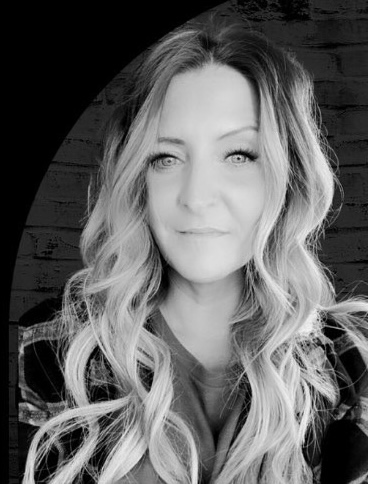
Kat Flannery’s love of history shows in her novels. She is an avid reader of historical, suspense, paranormal, and romance. A member of many writing Kat enjoys promoting other authors on her blog. When she’s not busy writing, or marketing Kat volunteers her time to other aspiring authors. She has been a keynote speaker, lecturer and guest author inspiring readers and writers at every event she attends. Kat’s been published in numerous periodicals throughout her career, and continues to write for blogs and online magazines. A bestselling author, Kat’s books are available all over the world. The BRANDED TRILOGY is Kat’s award-winning series. With seven books published, Kat continues to plot what story will be next. Creativity is in all aspects of Kat’s career. She does Social Media and Marketing for her own career and businesses, writing ads, and other content.
Catch Up With Kat Flannery:
www.KatFlannery.com/Books-1
Goodreads
BookBub – @KatFlannery
Instagram – @katflannery_
Twitter – @KatFlannery1
Facebook – @kat.flannery.5
Tour Participants:
Visit these other great hosts on this tour for more great reviews, interviews, guest posts, and giveaways!
ENTER TO WIN:
This is a rafflecopter giveaway hosted by Partners in Crime Virtual Book Tours for Kat Flannery. There will be 1 winner of one (1) Amazon.com Gift Card (U.S. ONLY). The giveaway runs September 1 through October 3, 2021. Void where prohibited.
Get More Great Reads at Partners In Crime Virtual Book Tours
Signs of the End of Time
September 4th, 2021Yeshua answered them, Be careful that no one leads you astray!
For many will come in My name, saying, ‘I am the Messiah,’ and will lead many astray.
You will hear of wars and rumors of wars. See that you are not alarmed, for this must happen but it is not yet the end.
For nation will rise up against nation, and kingdom against kingdom. And there will be famines and earthquakes in various places.
But all these things are only the beginning of birth pains.
Matthew 24:4-8 TLV
Yeshua – Hebrew for Jesus
I Sing for Joy
August 28th, 2021For You have been my help, and in the shadow of Your wings I sing for Joy.
Psalm 63:8 TLV
The Murderess Must Die
August 24th, 2021The Murderess Must Die
by Marlie Parker Wasserman
August 16 – September 10, 2021 Tour
Synopsis:
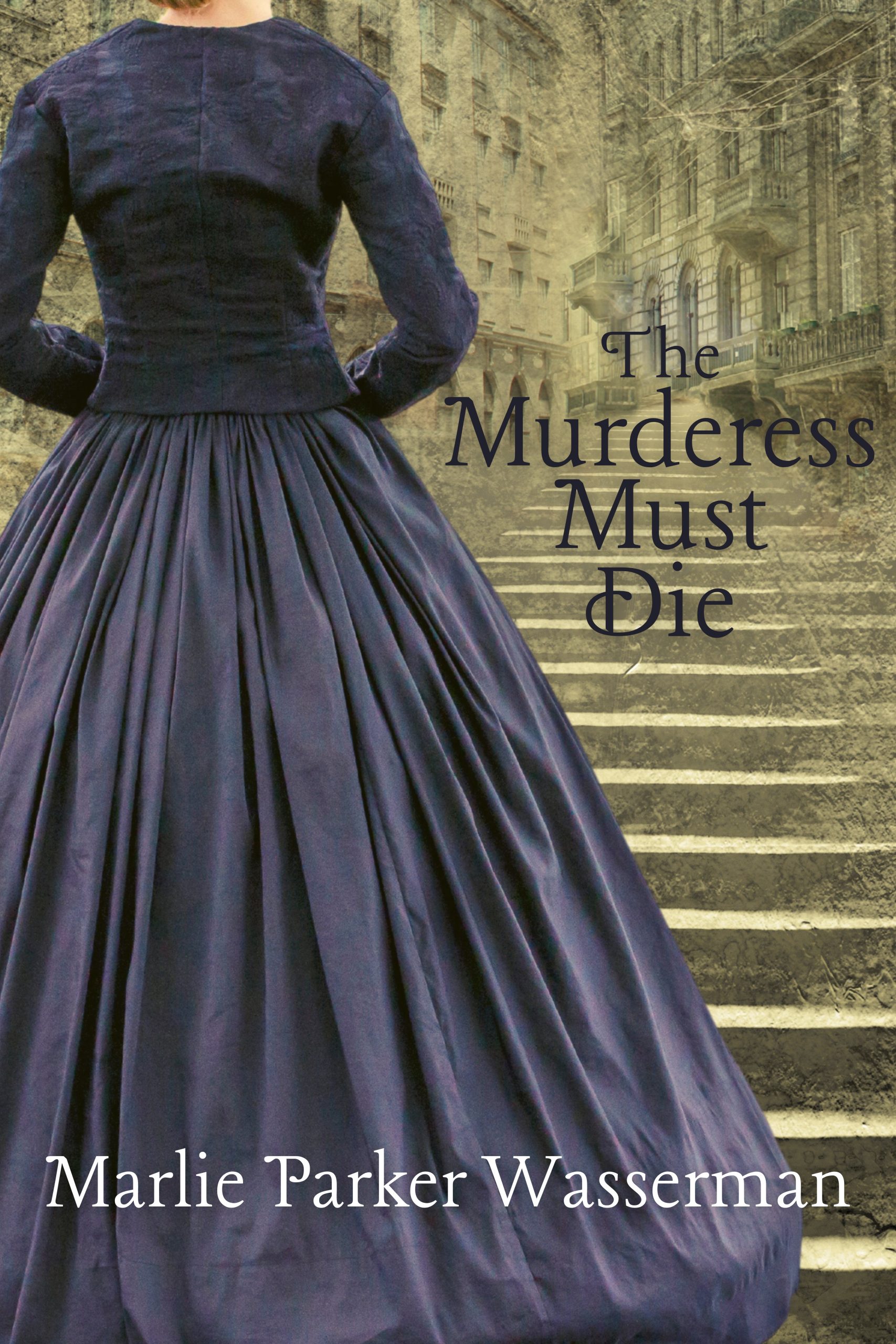
On a winter day in 1898, hundreds of spectators gather at a Brooklyn courthouse, scrambling for a view of the woman they label a murderess. Martha Place has been charged with throwing acid in her stepdaughter’s face, hitting her with an axe, suffocating her with a pillow, then trying to kill her husband with the same axe. The crowd will not know for another year that the alleged murderess becomes the first woman in the world to be executed in the electric chair. None of her eight lawyers can save her from a guilty verdict and the governor of New York, Theodore Roosevelt, refuses to grant her clemency.
Was Martha Place a wicked stepmother, an abused wife, or an insane killer? Was her stepdaughter a tragic victim? Why would a well-dressed woman, living with an upstanding husband, in a respectable neighborhood, turn violent? Since the crime made the headlines, we have heard only from those who abused and condemned Martha Place.
Speaking from the grave she tells her own story, in her own words. Her memory of the crime is incomplete, but one of her lawyers fills in the gaps. At the juncture of true crime and fiction, The Murderess Must Die is based on an actual crime. What was reported, though, was only half the story.
Praise for The Murderess Must Die:
A true crime story. But in this case, the crime resides in the punishment. Martha Place was the first woman to die in the electric chair: Sing Sing, March 20, 1899. In this gorgeously written narrative, told in the first-person by Martha and by those who played a part in her life, Marlie Parker Wasserman shows us the (appalling) facts of fin-de-siècle justice. More, she lets us into the mind of Martha Place, and finally, into the heart. Beautifully observed period detail and astute psychological acuity combine to tell us Martha’s story, at once dark and illuminating. The Murderess Must Die accomplishes that rare feat: it entertains, even as it haunts.
Howard A. Rodman, author of The Great Eastern
The first woman to be executed by electric chair in 1899, Martha Place, speaks to us in Wasserman’s poignant debut novel. The narrative travels the course of Place’s life describing her desperation in a time when there were few opportunities for women to make a living. Tracing events before and after the murder of her step-daughter Ida, in lean, straightforward prose, it delivers a compelling feminist message: could an entirely male justice system possibly realize the frightful trauma of this woman’s life? This true-crime novel does more–it transcends the painful retelling of Place’s life to expand our conception of the death penalty. Although convicted of a heinous crime, Place’s personal tragedies and pitiful end are inextricably intertwined.
Nev March, author of Edgar-nominated Murder in Old Bombay
The Murderess Must Die would be a fascinating read even without its central elements of crime and punishment. Marlie Parker Wasserman gets inside the heads of a wide cast of late nineteenth century Americans and lets them tell their stories in their own words. It’s another world, both alien and similar to ours. You can almost hear the bells of the streetcars.
Edward Zuckerman, author of Small Fortunes and The Day After World War Three, Emmy-winning writer-producer of Law & Order
This is by far the best book I have read in 2021! Based on a true story, I had never heard of Mattie Place prior to reading this book. I loved all of the varying voices telling in the exact same story. It was unique and fresh and so wonderfully deep. I had a very hard time putting the book down until I was finished!
It isn’t often that an author makes me feel for the murderess but I did. I connected deeply with all of the people in this book, and I do believe it will stay with me for a very long time.
This is a fictionalized version of the murder of Ida Place but it read as if the author Marlie Parker Wasserman was a bystander to the actual events. I very highly recommend this book.
Jill, InkyReviews
Book Details:
Genre: Historical Crime Fiction
Published by: Level Best Books
Publication Date: July 6, 2021
Number of Pages: 250
ISBN: 978-1953789877
Purchase Links: Amazon | Goodreads
ISLAND BREEZES
This book is based on a true crime but it crosses over into fiction. It’s the rest of the story as Paul Harvey used to say.
This book tells the story from the viewpoint of the murderess. You’ll hear many different voices as she and others tell her story. Who is a person supposed to believe?
Who really killed Ida? I have narrowed it down to two. Can you figure it out?
***Book provided without charge by PICT.***
Read an excerpt:
Mattie
Martha Garretson, that’s the name I was born with, but the district attorney called me Martha Place in the murder charge. I was foolish enough to marry Mr. William Place. And before that I was dumb enough to marry another man, Wesley Savacool. So, my name is Martha Garretson Savacool Place. Friends call me Mattie. No, I guess that’s not right. I don’t have many friends, but my family, the ones I have left, they call me Mattie. I’ll tell you more before we go on. The charge was not just murder. That D.A. charged me with murder in the first degree, and he threw in assault, and a third crime, a ridiculous one, attempted suicide. In the end he decided to aim at just murder in the first. That was enough for him.
I had no plans to tell you my story. I wasn’t one of those story tellers. That changed in February 1898, soon after my alleged crimes, when I met Miss Emilie Meury. The guards called her the prison angel. She’s a missionary from the Brooklyn Auxiliary Mission Society. Spends her days at the jail where the police locked me up for five months before Sing Sing. I never thought I’d talk to a missionary lady. I didn’t take kindly to religion. But Miss Meury, she turned into a good friend and a good listener. She never snickered at me. Just nodded or asked a question or two, not like those doctors I talked to later. They asked a hundred questions. No, Miss Meury just let me go wherever I wanted, with my recollections. Because of Miss Meury, now I know how to tell my story. I talked to her for thirteen months, until the day the state of New York set to electrocute me.
We talked about the farm, that damn farm. Don’t fret, I knew enough not to say damn to Emilie Meury. She never saw a farm. She didn’t know much about New Jersey, and nothing about my village, East Millstone. I told her how Pa ruined the farm. Sixty acres, only thirty in crop, one ramshackle house with two rooms down and two rooms up. And a smokehouse, a springhouse, a root cellar, a chicken coop, and a corn crib, all run down, falling down. The barn was the best of the lot, but it leaned over to the west.
They tell me I had three baby brothers who died before I was born, two on the same day. Ma and Pa hardly talked about that, but the neighbors remembered, and they talked. For years that left just my brother Garret, well, that left Garret for a while anyway, and my sister Ellen. Then I was born, then Matilda—family called her Tillie—then Peter, then Eliza, then Garret died in the
war, then Eliza died. By the time I moved to Brooklyn, only my brother Peter and my sister Ellen were alive. Peter is the only one the police talk to these days.
The farmers nearby and some of our kin reckoned that my Ma and Pa, Isaac and Penelope Garretson were their names, they bore the blame for my three little brothers dying in just two years. Isaac and Penelope were so mean, that’s what they deserved. I don’t reckon their meanness caused the little ones to die. I was a middle child with five before me and three after, and I saw meanness all around, every day. I never blamed anything on meanness. Not even what happened to me.
On the farm there was always work to be done, a lot of it by me. Maybe Ma and Pa spread out the work even, but I never thought so. By the time I was nine, that was in 1858, I knew what I had to do. In the spring I hiked up my skirt to plow. In the fall I sharpened the knives for butchering. In the winter I chopped firewood after Pa or Garret, he was the oldest, sawed the heaviest logs. Every morning I milked and hauled water from the well. On Thursdays I churned. On Mondays I scrubbed. Pa, and Ma too, they were busy with work, but they always had time to yell when I messed up. I was two years younger than Ellen, she’s my sister, still alive, I think. I was taller and stronger. Ellen had a bent for sewing and darning, so lots of time she sat in the parlor with handiwork. I didn’t think the parlor looked shabby. Now that I’ve seen fancy houses, I remember the scratched and frayed chairs in the farmhouse and the rough plank floor, no carpets. While Ellen sewed in the parlor, I plowed the fields, sweating behind the horses. I sewed too, but everyone knew Ellen was better. I took care with all my chores. Had to sew a straight seam. Had to plow a straight line. If I messed up, Pa’s wrath came down on me, or sometimes Ma’s. Fists or worse.
When I told that story for the first time to Miss Emilie Meury, she lowered her head, looked at the Bible she always held. And when I told it to others, they looked away too.
On the farm Ma needed me and Ellen to watch over our sisters, Tillie and Eliza, and over our brother Peter. They were born after me. Just another chore, that’s what Ellen thought about watching the young ones. For me, I liked watching them, and not just because I needed a rest from farm work. I loved Peter. He was four years younger. He’s not that sharp but he’s a good-natured, kind. I loved the girls too. Tillie, the level-headed and sweet one, and Eliza, the restless one, maybe wild even. The four of us played house. I was the ma and Peter, he stretched his
back and neck to be pa. I laughed at him, in a kindly way. He and me, we ordered Tillie and Eliza around. We played school and I pranced around as schoolmarm.
But Ma and Pa judged, they judged every move. They left the younger ones alone and paid no heed to Ellen. She looked so sour. We called her sourpuss. Garret and me, we made enough mistakes to keep Ma and Pa busy all year. I remember what I said once to Ma, when she saw the messy kitchen and started in on me.
“Why don’t you whup Ellen? She didn’t wash up either.”
“Don’t need to give a reason.”
“Why don’t you whup Garret. He made the mess.”
“You heard me. Don’t need to give a reason.”
Then she threw a dish. Hit my head. I had a bump, and more to clean.
With Pa the hurt lasted longer. Here’s what I remember. “Over there.” That’s what he said, pointing. He saw the uneven lines my plow made. When I told this story to Miss Meury, I pointed, with a mean finger, to give her the idea.
I spent that night locked in the smelly chicken coop.
When I tell about the coop, I usually tell about the cemetery next, because that’s a different kind of hurt. Every December, from the time I was little to the time I left the farm, us Garretsons took the wagon or the sleigh for our yearly visit to the cemetery, first to visit Stephen, Cornelius, and Abraham. They died long before. They were ghosts to me. I remembered the gloom of the cemetery, and the silence. The whole family stood around those graves, but I never heard a cry. Even Ma stayed quiet. I told the story, just like this, to Miss Meury. But I told it again, later, to those men who came to the prison to check my sanity.
Penelope Wykoff Garretson
I was born a Wyckoff, Penelope Wyckoff, and I felt that in my bones, even when the other farm folks called me Ma Garretson. As a Wyckoff, one of the prettiest of the Wyckoffs I’m not shy to say, I lived better than lots of the villagers in central New Jersey, certainly better than the Garretsons. I had five years of schooling and new dresses for the dances each year. I can’t remember what I saw in Isaac Garretson when we married on February 5, 1841. We slept together that night. I birthed Stephen nine months later. Then comes the sing-song litany. When I was still nursing Stephen, Garret was born. And while I was still nursing Garret, the twins were born. Then the twins died and I had only Stephen and Garret. Then Stephen died and I had no one but Garret until Ellen was born. Then Martha. Some call her Mattie. Then Peter. Then Matilda. Some call her Tillie. Then Eliza. Then Garret died. Then Eliza died. Were there more births than deaths or deaths than births?
During the worst of the birthing and the burying, Isaac got real bad. He always had a temper, I knew that, but it got worse. Maybe because the farm was failing, or almost failing. The banks in New Brunswick—that was the nearby town—wouldn’t lend him money. Those bankers knew him, knew he was a risk. Then the gambling started. Horse racing. It’s a miracle he didn’t lose the farm at the track. I didn’t tell anyone, not even my sisters, about the gambling, and I certainly didn’t tell them that the bed didn’t help any. No time for shagging. Isaac pulled me to him at the end of a day. The bed was always cold because he never cut enough firewood. I rolled away most days, not all. Knew it couldn’t be all. So tired. There were no strapping boys to
help with the farm, no girls either for a while.
As Garret grew tall and Ellen and Mattie grew some, I sent the children to the schoolhouse. It wasn’t much of a school, just a one-room unpainted cottage shared with the post office, with that awful Mr. Washburn in charge. It was what we had. Isaac thought school was no use and kept Garret and the girls back as much as he could, especially in the spring. He needed them for the farm and the truth was I could use them for housework and milking and such too. Garret didn’t mind skipping school. He was fine with farm work, but Ellen and Mattie fussed and attended more days than Garret did. I worried that Garret struggled to read and write, while the girls managed pretty well. Ellen and Mattie read when there was a need and Mattie was good with her numbers. At age nine she was already helping Isaac with his messy ledgers.
I was no fool—I knew what went on in that school. The few times I went to pull out Garret midday for plowing, that teacher, that Mr. Washburn, looked uneasy when I entered the room. He stood straight as a ramrod, looking at me, grimacing. His fingernails were clean and his collar was starched. I reckon he saw that my fingernails were filthy and my muslin dress was soiled. Washburn didn’t remember that my children, the Garretson children, were Wyckoffs just as much as they were Garretsons. He saw their threadbare clothes and treated them like dirt. Had Garret chop wood and the girls haul water, while those stuck-up Neilson girls, always with those silly smiles on their faces, sat around in their pretty dresses, snickering at the others. First, I didn’t think the snickering bothered anyone except me. Then I saw Ellen and Mattie fussing with their clothes before school, pulling the fabric around their frayed elbows to the inside, and I knew they felt bad.
I wanted to raise my children, at least my daughters, like Wyckoffs. With Isaac thinking he was in charge, that wasn’t going to happen. At least the girls knew the difference, knew there was something better than this miserable farm. But me, Ma Garretson they called me, I was stuck.
***
Excerpt from The Murderess Must Die by Marlie Wasserman. Copyright 2021 by Marlie Wasserman. Reproduced with permission from Marlie Wasserman. All rights reserved.
Author Bio:

Marlie Parker Wasserman writes historical crime fiction, after a career on the other side of the desk in publishing. The Murderess Must Die is her debut novel. She reviews regularly for The Historical Novel Review and is at work on a new novel about a mysterious and deadly 1899 fire in a luxury hotel in Manhattan.
Catch Up With Marlie Wasserman:
www.MarlieWasserman.com
Instagram – @marliepwasserman
Twitter – @MarlieWasserman
Facebook – @marlie.wasserman
Tour Participants:
Visit these other great hosts on this tour for more great reviews, interviews, guest posts, and giveaways!
Join In To Win!
This is a rafflecopter giveaway hosted by Partners in Crime Virtual Book Tours for Marlie Parker Wasserman. There will be 1 winner of one (1) Amazon.com Gift Card (U.S. ONLY). The giveaway runs from August 16th until September 12, 2021. Void where prohibited.






